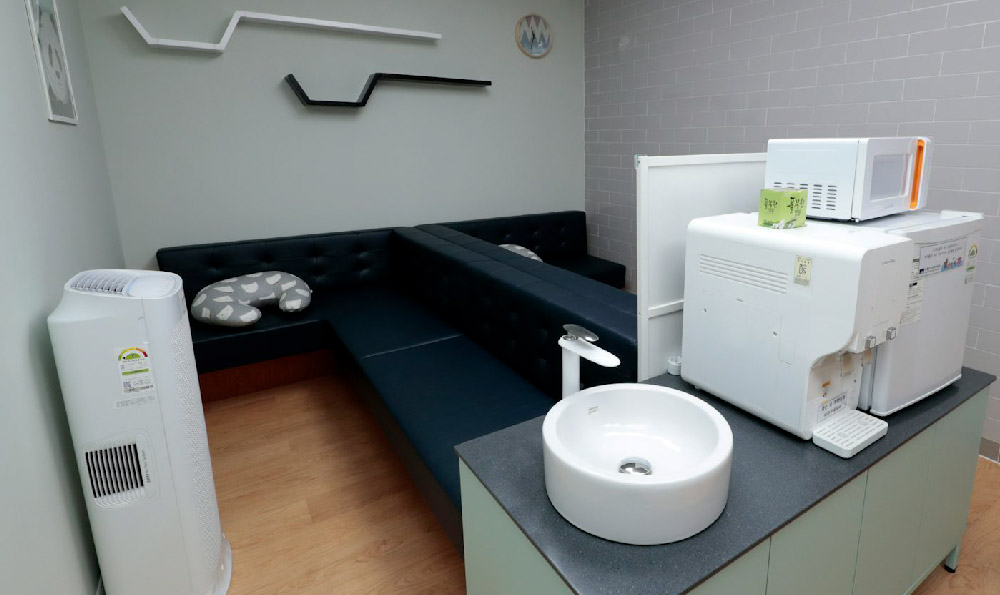一、太原杏花岭区家具除甲醛行业现状
杏花岭区位于太原市中心,是太原的繁华商业区之一。随着人们对生活品质要求的提高,家具市场的需求量也逐渐增加。与此大量的低质量家具产品也进入市场,其中甲醛超标成为了一个严重的问题。据相关数据显示,目前市场上高达80%的家具存在甲醛超标问题,这给人们的健康带来了严重威胁。
二、太原杏花岭区家具除甲醛的重要性
甲醛是一种有毒有害物质,对人体健康有不可忽视的危害。长期接触甲醛超标的家具,会导致呼吸系统疾病、过敏性疾病等健康问题。尤其是对于孕妇、儿童、老人等特殊人群,更加容易引发相关疾病。太原杏花岭区家具除甲醛行业的出现,为人们提供了一个安全健康的居家环境。
三、太原杏花岭区家具除甲醛的技术和服务
在太原杏花岭区,家具除甲醛行业的技术和服务已经得到了较大的突破和提高。通过引进先进的甲醛检测设备,可以准确测量家具中的甲醛含量,并根据检测结果制定相应的除甲醛方案。家具除甲醛行业提供了多种除甲醛技术,如光触媒、活性炭、空气净化等,可以根据不同的家具材质和甲醛含量选择合适的除甲醛方法。太原杏花岭区的家具除甲醛行业还注重服务质量,提供专业的售后服务,确保消费者的问题能够及时解决。
四、太原杏花岭区家具除甲醛行业的未来发展
太原杏花岭区家具除甲醛行业在满足人们对安全健康居住环境需求的也为经济发展带来了新的机遇。随着市场竞争的加剧,太原杏花岭区的家具除甲醛行业将不断创新,提高技术水平和服务质量,满足消费者多样化的需求。政府和相关部门也将加大对家具除甲醛行业的监管力度,建立更加完善的行业标准和规范,确保消费者的权益得到有效保护。
太原杏花岭区家具除甲醛行业的发展对于人们的生活质量和健康至关重要。随着消费者对健康环保产品的需求不断增加,太原杏花岭区的家具除甲醛行业将迎来更加广阔的发展空间。通过不断提高技术和服务水平,太原杏花岭区的家具除甲醛行业将成为太原乃至整个山西省内的行业领军者,为人们提供一个安全可靠的居住环境。
山西省太原市迎泽区天气
一、太原市迎泽区气候概况

太原市迎泽区位于山西省中部,属于暖温带半湿润大陆性气候。区域内四季分明,冬季寒冷而干燥,夏季炎热多雨。年平均气温约为12摄氏度,年降水量约为450毫米。迎泽区的气候特点对当地的农业、工业以及市民生活都有着重要的影响。
二、迎泽区的四季气候特征
1. 春季:春季是太原市迎泽区气温逐渐回暖的时期。这一季节,气温逐渐上升,但仍然较为寒冷,日间温差较大。春季的降水量较多,多以雨水形式出现。这种气候特点使得迎泽区春季适宜农作物生长,但也容易引发一些疾病传播。
2. 夏季:夏季是迎泽区最炎热潮湿的时期。气温常常超过30摄氏度,且夜间温度较高,不易散热。夏季是降水最多的季节,暴雨较为常见。高温多雨的气候条件有利于农作物丰收,但也容易引发洪涝灾害。
3. 秋季:秋季是迎泽区气温逐渐降低的季节。气温适宜,较为凉爽,是人们出行和户外活动的好时机。降水量渐渐减少,但秋季仍然多风,易引发风口浪尖等气象灾害。秋季是迎泽区的农作物丰收季节。
4. 冬季:冬季是太原市迎泽区最寒冷的季节。气温极低,且干燥,常有大风。冬季的降水量较少,但偶有降雪。迎泽区的冬季气候条件不利于户外活动,也对农作物产量带来一定的影响。
三、迎泽区天气对当地产业的影响
1. 农业:迎泽区的气候条件使得农作物种植具有一定的局限性。农民需要根据不同季节的气候特点选择适宜的农作物种植,以提高产量和品质。在夏季和秋季容易受到洪涝和风口浪尖等自然灾害的影响,需要采取相应的防范措施。
2. 工业:迎泽区的气候条件对当地的工业生产也有一定的影响。夏季高温多雨,需要工厂做好防暑降温和防洪准备。冬季寒冷干燥,可能导致某些生产线的冻结或设备故障。当地的工业企业需要根据气候特点进行生产计划和设备维护。
四、迎泽区天气服务与预警
为了提供准确的天气信息和服务,迎泽区建立了完善的气象观测系统,并与相关机构合作,共享数据资源。针对不同气候特点,区内建立了相应的天气预警系统,及时发布各类预警信息,以帮助市民和相关行业做好应对措施。
太原市迎泽区的气候条件对当地农业和工业生产有着重要的影响。了解并适应当地气候特点,对于农民和工业企业来说都具有重要意义。及时获取天气信息和预警服务,能有效减少气候带来的不利影响,提高生活和生产的质量。
太原吧:传统与现代共融的城市风貌
一、太原吧的地理位置和概况

太原吧位于中国山西省的中部地区,是这个省的省会城市。太原吧坐落在晋中盆地的中心,被山西西山环抱,地势平缓。太原吧的气候属于暖温带大陆性气候,四季分明,冬季寒冷,夏季炎热。太原吧有着悠久的历史和丰富的文化底蕴,是中国重要的历史文化名城之一。
二、太原吧的经济特点和主要产业
太原吧是山西省的经济中心,拥有完善的交通网络和丰富的资源。太原吧的主要产业包括煤炭、能源、冶金、化工、机械制造、纺织和食品加工等。特别是煤炭产业,太原吧是中国重要的煤炭基地之一,煤炭资源储量丰富,煤炭开采和生产在这里占据重要地位。
三、太原吧的城市建设和发展
太原吧近年来在城市建设和发展方面取得了显著成就。城市的道路交通网络得到了不断改善,建设了多条快速路和高速公路,提高了城市的交通便利性。太原吧在生态环境保护方面也做出了努力,推动了可持续发展。城市的绿化面积不断扩大,公园和绿地的建设也日益完善,为市民提供了良好的休闲环境。
四、太原吧的文化与旅游
太原吧作为一个历史文化名城,有着丰富的文化遗产和旅游资源。太原吧的古建筑和历史遗址吸引了大量的游客,如天龙山石窟、乔家大院和晋祠等。太原吧还举办了众多的文化活动和节庆,如山西春节庙会、太原文博会等,吸引了全国甚至全球的游客前来观光和体验太原吧的独特魅力。
太原吧作为山西省的省会城市,具有独特的地理位置和经济特点。太原吧在城市发展和建设方面取得了显著成就,同时也积极保护和传承本地的历史文化。太原吧以其悠久的历史和丰富的旅游资源吸引了大量的游客前来参观和体验。太原吧正以其独特的魅力和发展潜力成为中国乃至世界的瞩目焦点之一。
